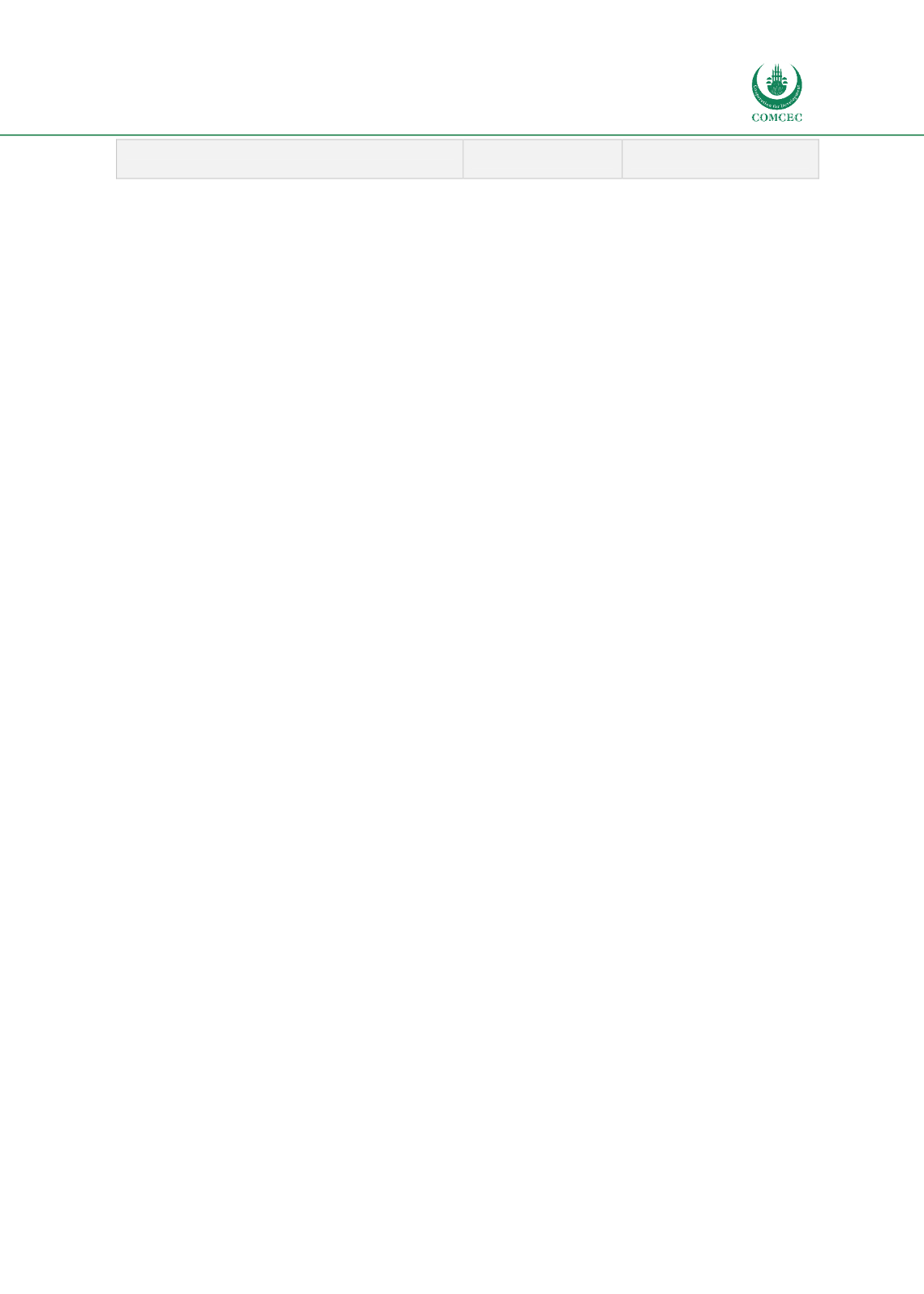

Improving Customs Transit Systems
In the Islamic Countries
149
UN Global Survey on Trade Facilitation and
Paperless Trade Implementation – TF Score
61.29%
62.67%
Source: Author’s own compilation
Doing Business – Trading across Border 2018 data shows that the Republic of Senegal
is ranked 141 of 185 worldwide economies worldwide regarding ease of trading across
borders.
World Bank’s Logistics Performance Index (LPI) an indicator of trade facilitation,
analyses countries through six dimensions. The overall ranking of the Republic of
Senegal ranked on a 141
st
place out of 160 economies assessed comparing to 2016when
the Republic of Senegal was ranked 132
nd
;
Senegal, according the UN Global Survey on Trade Facilitation and Paperless Trade
Implementation 2019 has 61.29% TF score, near the worlwide average.
4.2.3
Senegal legal framework at the national and regional levels
4.2.3.1
SC Customs Code
The Law on Customs came into force in February 2014 (Law 2014/10 - General Customs Code),
compliant with the transit provision of the ECOWAS Convention A/P.4/5/82 (1982) Relating to
Inter-State Road Transit of Goods and Supplementary Convention A/SP.1/05/90 of May 1990.
The administrative instruction and implementing regulations for the implementation of the
legal transit provision are defined in the SC Transit Administrative Instruction.
SC has the authority to conclude administrative agreements/ Memoranda of Understanding
(MoU) related to transit procedures with the other Customs Administrations, Internal Trade /
Business, OGAs, regional / international organizations or associations, organizations or National
Associations, Port Authorities, Airlines, Railway Companies, and Express Courier Services.
4.2.3.2
Bilateral and regional agreements
The Economic Community of West African States (ECOWAS) treaty was established in Lagos in
1975. The treaty of Lagos was originally treated as an economic initiative, but emerging political
events led to its revision and therewith the expansion of scope and powers in 1993.
ECOWAS defines three postulates for the application of Customs Union, while the
implementation is still underway:
Intracommunity trade liberalization;
ECOWAS Trade Liberalization Scheme (ETLS);
Inter-State Road Transit of Goods (TRIE);
Joint border control posts Joint (Inspection Posts - JIP);
Trade with third party countries
















